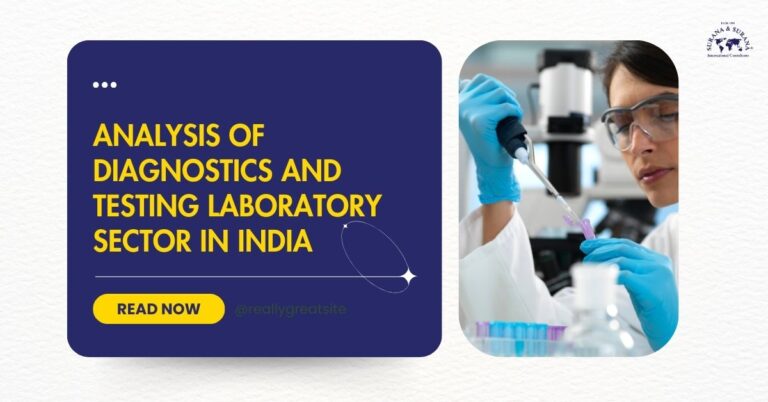In an era where data is as valuable as gold, the introduction of the Digital Personal Data Protection Act, 2023 (DPDP Act), is a pivotal moment for businesses in India and beyond. This legislation not only redefines the landscape of digital data protection but also sets new standards for how businesses handle personal data. Understanding the nuances of this act is crucial for businesses to navigate this new regulatory environment effectively.
Background of the DPDP Act
The DPDP Act emerged from a growing need to address privacy concerns in the digital age. With personal data becoming increasingly vulnerable to misuse, the Indian government recognized the urgent need for a robust legal framework to protect individual privacy rights while balancing the interests of businesses. This act marks a significant shift from the earlier data protection regime, focusing more on individual rights and compliance obligations for businesses.
Key Provisions of the Act
The DPDP Act introduces several key provisions that have direct implications for how businesses handle personal data. Some of these include:
- Consent Framework: The act emphasizes the need for explicit consent for data collection, stating that businesses must obtain clear, informed consent from individuals before collecting or processing their personal data.
- Data Localization Requirements: Certain categories of personal data must be stored on servers located within India, ensuring that data about Indian citizens is protected under local laws.
- Data Protection Officer (DPO): Businesses are required to appoint a DPO to oversee compliance with the act, ensuring that there’s a dedicated role for data protection oversight.
- Rights of Individuals: The act strengthens the rights of individuals, including the right to access, correct, and delete their personal data held by businesses.
Implications for Business Operations
The Digital Personal Data Protection Act, 2023, ushers in a new era of data management for businesses. It demands a comprehensive reassessment of how companies deal with personal data. This reassessment involves several key areas:
- Data Collection and Consent: The act mandates a more stringent approach to data collection. Businesses must ensure they obtain clear, informed consent from individuals before collecting their personal data. This involves redesigning data collection forms and processes to be more transparent, providing individuals with clear information about what data is being collected, why it is needed, and how it will be used.
- Data Processing and Security: The act necessitates a review of data processing activities to ensure compliance with prescribed standards. Companies must implement robust security measures to protect personal data against unauthorized access, disclosure, alteration, and destruction. This might involve adopting advanced encryption methods, secure data transfer protocols, and regular security audits.
- Privacy Policy Updates: Updating privacy policies is crucial. These policies must clearly articulate the company’s data handling practices, including data collection, use, storage, and sharing. It’s essential to ensure that these policies are easily accessible and understandable to the average user.
- Data Localization: Adhering to data localization requirements is a significant operational change for many businesses. Companies must ensure that certain categories of personal data are stored on servers located within India. This might involve setting up new data centers in India or contracting with local data service providers.
- Data Protection Officer (DPO): Appointing a Data Protection Officer is now a requirement for many businesses. This individual will be responsible for overseeing data protection strategy and compliance with the DPDP Act. The role includes conducting regular assessments, ensuring employee training, and serving as a point of contact for data subjects and regulatory authorities.
- Data Subject Rights: Businesses must be prepared to address the enhanced rights of data subjects, including the right to access, correct, and delete their personal data. This will require establishing efficient mechanisms to respond to data subject requests in a timely manner.
- Vendor and Third-party Management: Companies need to reassess their relationships with vendors and third-party service providers. It’s vital to ensure that these entities also comply with the DPDP Act, especially when they handle or process personal data on behalf of the company.
- Impact Assessment and Documentation: Conducting regular Data Protection Impact Assessments (DPIAs) becomes crucial. These assessments help identify and mitigate risks associated with data processing activities. Proper documentation of data processing activities and compliance measures is also essential for demonstrating compliance if required.
- Employee Training and Awareness: Creating a culture of data protection within the organization is key. Regular training programs for employees about the importance of data protection and the specifics of the DPDP Act will help in embedding compliance into the organizational fabric.
- Incident Response and Reporting: Developing or updating an incident response plan is vital. The plan should outline the steps to be taken in the event of a data breach, including notifying regulatory authorities and affected individuals as required by the act.
In summary, the DPDP Act impacts almost every aspect of how businesses handle personal data. While the transition to full compliance may be challenging, it is an essential step towards ensuring data privacy and building a trustworthy relationship with customers in the digital age.
Compliance Requirements
Compliance with the DPDP Act involves several steps:
- Data Mapping and Auditing: Businesses must understand what personal data they collect, how it is processed, and where it is stored.
- Updating Policies and Procedures: Privacy policies, consent forms, and data handling procedures need to be aligned with the new legal requirements.
- Employee Training: Staff must be trained on the importance of data protection and the specific requirements of the DPDP Act.
Challenges and Opportunities
Challenges
Compliance with the Digital Personal Data Protection Act, 2023, brings its set of challenges for businesses, primarily in the areas of infrastructure and policy adaptation:
- Infrastructure Changes: Adapting to data localization requirements means businesses may need to invest in new or additional server capacities within India. This shift could involve significant financial and logistical planning, especially for companies that previously relied on international data centers.
- Policy Overhaul: Updating privacy policies, consent forms, and data handling procedures to align with the DPDP Act’s provisions is a substantial undertaking. It requires a thorough understanding of the law and its implications, often necessitating legal expertise.
- Training and Awareness: Ensuring that all employees are trained and aware of the new data protection practices is crucial. This involves not just a one-time training session but an ongoing effort to keep the workforce abreast of compliance requirements and best practices.
- Technology Upgrades: To ensure data security and compliance, businesses might need to upgrade their technology systems. Implementing advanced data protection and encryption technologies can be resource-intensive.
- Compliance Monitoring and Enforcement: Setting up mechanisms to continually monitor compliance and enforce data protection policies can be challenging, especially for smaller businesses with limited resources.
Opportunities
Despite these challenges, the DPDP Act opens up a range of opportunities for businesses that embrace its principles:
- Enhanced Reputation and Trust: By complying with the DPDP Act, businesses demonstrate their commitment to data protection, which can significantly enhance their reputation. In a world where consumers are increasingly aware of and concerned about their data privacy, this can be a substantial competitive advantage.
- New Market Access: Compliance with stringent data protection laws like the DPDP Act can open doors to new markets, especially in regions where data privacy is a high priority. It can serve as a badge of trust and reliability, appealing to a broader customer base.
- Customer Confidence: When customers know their data is treated with respect and protected according to strict standards, their confidence in a business increases. This trust is foundational for long-term customer relationships
- Innovation in Data Handling: The need to comply with the DPDP Act can drive innovation in data handling and processing. Businesses are encouraged to explore more efficient, secure, and customer-centric ways of managing data.
- Risk Mitigation: Proactively adapting to the DPDP Act’s requirements helps in mitigating risks associated with data breaches and non-compliance. This proactive approach can save businesses from potential legal issues and hefty fines.
In conclusion, while the DPDP Act presents significant challenges, it also offers businesses an opportunity to stand out in the digital economy by showcasing their commitment to data protection. By embracing these changes, companies can not only ensure compliance but also foster a culture of trust and innovation, positioning themselves as leaders in the era of digital transformation.
Conclusion
As data continues to drive business growth, the DPDP Act serves as a crucial framework for ensuring data is handled responsibly and ethically. Understanding and implementing its provisions is not just about legal compliance; it’s about respecting individual privacy and securing a business’s future in the digital age.
Are you ready to navigate the complexities of the DPDP Act with confidence? Get in touch with our in-house experts at SSIC for personalized guidance and strategies tailored to your business needs. Our team can help you turn these new challenges into opportunities for growth and trust-building with your customers.




